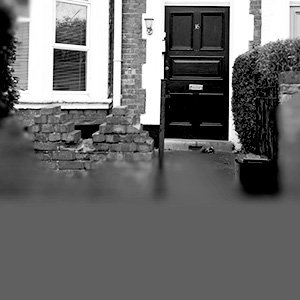As much as we love the sunshine of the summer we also look forward to the brand-new Autumn season and the festivities that makes it so special; The beautiful colours, the magic of Halloween, the glorious fireworks, pumpkin spice latte’s, and of course…the Autumn budget. Ok maybe the 2018 budget isn’t something that emphasises the greatness of Autumn, and some of you may be mystified as to why it has come earlier than expected (Clue: it starts with Br and ends in exit).
As experts in business insurance, we analysed this year’s budget to let you decide whether Fiscal Phil’s red briefcase is an early Christmas present or a Halloween horror.
How does the budget affect road users?
Roundabouts, traffic and beloved potholes are some of the things that make our roads innately British. Well, the government has proposed that the forthcoming budget will look to counteract the Great British pothole with £420m worth of funding to be made available for councils to repair them. However, for those of you worrying that the roads will lose their Britishness with such a cash injection, fear not – Christopher Snelling – Head of UK policy at the Freight Transport Association, stated that this was a mere drop in the ocean when you consider the £8bn needed to fix the roads from years of underinvestment. So, it looks like potholes won’t be gone just yet.
The protests against petrol prices rising to above £1.00 a litre will be a long distant memory to most, but the good news (if you can call it that) is that fuel duty has been frozen for the upcoming year. 2020 will mark the first year in which vehicle excise duty (VED) is ringfenced for use exclusively on roads since the government’s pledge in 2015, which will include the UK councils £420m fund for potholes, public transport and upgrading major routes.
Key Points:
- VED ringfenced exclusively for use on roads
- Fuel duty was frozen
- £420m available for councils to counter potholes
How does the budget affect commercial vehicle operators?
Van owners can breathe a sigh of relief as the ever-intimidating red briefcase won’t punish them with more VED…yet. The government had published a consultation in May which looked to reform VED for vans to a “graduated first-year VED rate” for vans, similar to that of cars. Whilst zero-emission vans would be subject to a £0 rate, some of the most polluting vehicles could have been hit with a £500.00 first-year rate, although vans won’t be exempt from VED rising with the retail price index from April 2019, as with cars and motorcycles.
Fleet operators will also be glad to hear that the government will be freezing the heavy goods vehicles VED for 2019-20. Van and taxi owners might also want to take advantage of the plug-in grant which has been extended to both taxi’s and vans for the models listed below, offering considerable discounts to brand new purchases, so there’s definitely a justification in asking for an electric van or taxi for Christmas.
| Vans: The government will pay for 20% of the purchase price for these vehicles up to a maximum of £8,000 | BD Otomotiv eTraffic, BD Otomotiv eDucato, Citroen Berlingo, Mitsubishi Outlander Commercial, Nissan e-NV200 (cargo van), Peugeot ePartner, Renault Kangoo ZE, Renault Master ZE, LDV EV80 van, LDV EV80 chassis cab |
| Taxi: The government will pay for 20% of the purchase price for these vehicles, up to a maximum of £7,500 | LEVC TX |
Key points:
- Plug-in grant extended to vans and taxis
- VED frozen for HGV’s
- Emission based regime for van VED not implemented
How does the budget affect homeowners?
For those of you who earn less than £100,000, Fiscal Phil’s red briefcase may draw a resemblance with Santa Clause’s red sack, as you’ll benefit from both. Firstly, the personal allowance will be raised to £12,500 from £11,850 corresponding into a £130 saving for basic rate taxpayers. Secondly, for those paying the higher rate of tax which starts when you earn £46,350 or more, you’ll only be required to pay the higher rate once your earnings reach £50,000, corresponding into a saving of £860.00 or £600.00 for those of you earning above £150,000. The minimum wage is also set to rise from £7.83 to £8.21. In terms of Home Insurance, this should be unaffected due to the freeze placed on insurance premium tax (IPT).
Key Points:
- Personal allowance raised to £12,500
- Higher rate tax band increased to £50,000
- Minimum wage increases from £7.83 to £8.21
How does the budget affect landlords?
Landlords may not be so pleased with Mr. Hammond’s briefcase, with many of you preferably drawing comparisons to the Grinch rather than Santa Clause, although it isn’t all bad news. The chancellor has announced that the capital gains tax (CGT) will rise from £11,700 to £12,000 starting on the 6th of April. The main changes affecting landlords are concerned with principle residence relief and lettings relief. Lettings relief is typically available to those who have lived in the property they are selling, however, from April 2020 it will only be available to a landlord sharing residence with the tenant. The principle residence relief will be shortened from 18 months to 9 months as of April 2020. Typically, landlords, who have lived in the home they’re selling would be able to add up to 18 months to the time they had lived there to refrain from CGT, however, this will only be for 9 months now.
For Example, if a landlord lived in a flat for 70 months as his/her main home, then subsequently let the property while living elsewhere for 30 months, the current ruling would allow for up to 18 additional months where the landlord is exempt from CGT. This would total to 88 months free of CGT, however, new rulings restrict this to 9 months and in the example, the landlord would only be free of CGT for 79 months instead of 88.
Aside from this, the government is also keen to introduce gigabit-capable connections across the UK by 2033. The government is proposing to oblige landlords to respond to telecoms operators’ request to occupied properties.
Key Points:
- CGT increase to £12,000
- Principle residence relief reduced to 9 months
- Lettings relief available to landlords sharing residence with tenants only
How does the budget affect business owners?
Likewise, with Home Insurance, Business Insurance should also remain unaffected due to the IPT insurance premium tax freeze. Businesses do look set to be affected by the minimum wage increase from £7.83 to £8.21, although some will look to prosper as the government announced that it would slash the apprentice levy by half. Shops, pubs, restaurants and cafes in England with a rateable value of £51,000 and under will also benefit as they look set to have their business rates cut by a third. The government has also temporarily increased the annual investment allowance for investments between £200,000 and £1m. So, for those of you looking to make that big investment, Christmas may have come early.
Key Points:
- Apprentice levy slashed by half
- Business rates for SME’s cut by a third
- Temporary increase in the annual investment allowance
This has been an unusual budget and one that’ll bring some to crack out the bottle of bubbly and others to drown their sorrows. There is a silver lining for those drowning their sorrows, as your counterparts cracking out the bubbly will be faced with 9p extra to pay in line with inflation by February. Maybe it’d be best to stick to beer where duty has been frozen!
What are your thoughts on this year’s budget? Let us know on our Facebook and Twitter pages.










